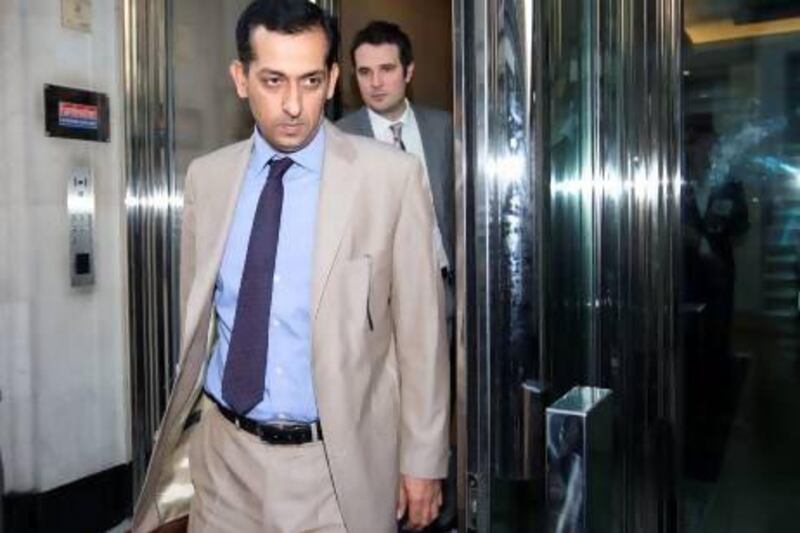The UAE's Emirates Racing Authority (ERA) has no plans to test the Godolphin horses still in Dubai which previously were in the care of Mahmoud Al Zarooni.
According to Simon Crisford, Godolphin's racing manager, Al Zarooni revealed he was responsible for giving "fewer than ten horses" in pre-training anabolic steroids during early winter in Dubai.
The former Godolphin trainer assured Crisford those horses remained in Dubai, and that the same two foremen and vet's assistant that assisted Zarooni in Newmarket were also involved.
During an interview with the British Horseracing Authority prior to his hearing on April 25, Al Zarooni stated that his knowledge of anabolic steroids came from his time in Dubai.
The ERA has not been made aware of which horses were given the drugs, as the use of anabolic steroids is permitted outside of competition in the UAE.
It is not known whether Al Zarooni entered the use of these drugs in the medication book of the horses in question.
He confirmed that he failed to record the administration of anabolic steroids in England with regard to the 15 horses that resulted in his eight-year disqualification from racing. He could offer no explanation for the omission but in a twist to the doping saga on Tuesday, Al Zarooni lodged an appeal to his ban.
"There is no need to test them," an ERA spokesman told The National. "The substances in question are not prohibited when used out of competition and for therapeutic purposes in the UAE.
"It is the responsibility of the trainer to keep full medical records. These records should be available for ERA officials to view at any time, but trainers are not required to inform the ERA when these substances are administered."
The ERA tested 30 per cent of Al Zarooni's horses during the 2013 Dubai World Cup Carnival and overall the regulatory body took 563 post-race samples from a total of 4,039 starters.
Every winner at Meydan Racecourse was tested during the Carnival and the results were analysed at the Equine Forensic Unit Laboratory in Dubai, an internationally accredited laboratory.
If irregularities are found in any sample during the Carnival, like that of Mike De Kock's Amanee that lead to disqualification from being runner-up in the Cape Verdi in January, a second sample is sent to the Singapore Turf Club for confirmation.
In addition to this testing, every thoroughbred and Purebred Arabian runner on Dubai World Cup night also underwent pre-race testing. The samples are kept for a minimum of 12 months but the ERA has no plans to revisit those samples at this time.
There have been calls around the world to create a uniform set of international rules concerning prohibited substances.
Although the ERA is confident that their testing procedures are robust, the body has not ruled out a review in future.
"Regardless of the situation with Mahmoud Al Zarooni, we are constantly reviewing and developing our rules, especially in light of any significant developments in world racing," the spokesman added.
"The ERA, in accordance with every other sporting authority around the world, is doing its utmost to ensure the integrity of the sport it administers.
"The ERA is confident that racing and Arabian racing in the UAE is clean."





